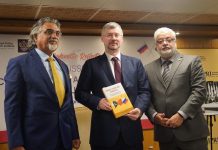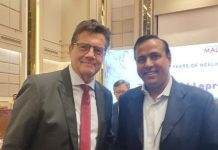DNA
LAHORE – The Ferozepur Road Industrial Association (FRIA) senior vice chairman Shahbaz Aslam has said that with a view to deal with fiscal challenges the government should work on the three-way strategy by implementing short-term goals that will help to keep generating resources for smooth fiscal operations, medium-term goals where the government should focus on financial inclusion, documenting the economy by designing a system where all businesses can be registered and properly document their income including collection of sales tax, initiating the process of privatization as well as improving governance by introducing reforms in each sector.
In a statement issued here today, the FRIA SVC said as a long-term goal, the country must focus on improving its human capital, and revamping IT sectors by extending facilitations and providing all the requisite supports.
He said that ever-increasing cost of production in the country is the real threat to the industry, as frequent upward revisions in policy rate and continuous fluctuations in rupee against dollar are posing further threat to the economy.
He observed that the aggressive economic measures, high borrowing rates, inflation, oppressive taxation and unstable currency have been negatively affecting running businesses, many of which have closed their operations, while the remaining are struggling for survival.
In the same way, we also need to work on designing a comprehensive and proactive strategy to tackle challenges related to strengthening border security and implementing effective and comprehensive Anti-Money Laundering and Terrorist Financing measures holding accountable and taking to task all those who are involved in illegitimate activities, undermining both our economy and national interests, he added.
Shahbaz Aslam said that the government does not have any pragmatic plan to address this liability, apart from asking for more loans to repay existing debt. Likewise, the target for current financial year’s exports is too low to meet the country’s revenue.
He said that the conventional approach of focusing solely on improving exports while pursuing a passive and imprudent foreign policy towards neighbouring countries, poses a significant challenge in meeting export targets. Despite strained relations, the United States remains the largest importer of Pakistani products. Still, there are no efforts to tap into the vast markets of neighbouring countries or negotiate trade agreements with them.
The PIAF leader said that even though Pakistan and China enjoy close relations, yet the volume of exports to China is significantly lower compared to USA. Furthermore, the existing Pakistan China Free Trade Agreement tends to benefit Chinese-origin corporations more than Pakistani businesses, giving them greater market access at the expense of Pakistani products.
He said that the government is neglecting two important factors, namely, Information Technology and export of human capital that together can contribute towards generating foreign exchange and mobilising revenue. It is essential to concentrate on nurturing a skilled workforce and assisting them in securing international employment opportunities. This approach would have a positive impact on our foreign policy and help in building foreign exchange reserves.












